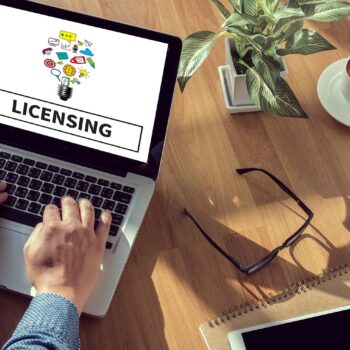
CPAB’s 2024 Interim Inspections: Key Findings, Role of Audit Committees, and the Road Ahead
- Posted by admin
- On January 7, 2025
- 0 Comments
- Rajesh Khairajani
The Canadian Public Accountability Board (CPAB), Canada’s independent audit regulator, has released its 2024 Interim Inspections Report, highlighting strengths and challenges in the audit landscape. This report is based on inspections of 50 files out of the planned 66 from Canada’s four largest audit firms and 16 files from smaller firms. CPAB’s inspections focus on high-risk areas and complex audit engagements, providing critical insights into how firms manage risk, comply with regulatory requirements, and address emerging challenges, such as fraud detection, independence breaches, and climate-related risks.
The report identified 4 significant findings among the larger firms and 6 findings among smaller firms, a slight improvement compared to 10 findings across 63 inspections in 2023. As the audit environment grows increasingly complex with the introduction of new technologies and evolving standards, the report highlighted that the role of audit committees in upholding audit quality and financial integrity is more crucial than ever.
Summary of Findings:
| Category | Findings | Details |
| Risk of Material Misstatement | Insufficient identification and reassessment | Auditors displayed a bias toward lower-risk classifications and failed to re-evaluate risks as the audit progressed, especially in critical areas like revenue, financial instruments, and consolidation processes. |
| Use of Experts | Weak oversight of experts | Engagement teams did not sufficiently assess the opinions of external experts, especially for credit loss models and other complex financial models. |
| Fraud Risk Identification | Inadequate response to fraud indicators | Auditors disregarded whistleblower reports, complaints, and short-seller claims, resulting in missed fraud risks. |
| Supervision and Review | Gaps in engagement oversight | Deficiencies that should have been identified through supervision or engagement quality reviews (EQR) were missed, affecting the quality of audit opinions. |
| Ethics and Independence | Non-compliance with independence standards | Findings included partner rotation breaches and conflicts of interest from non-audit services, such as outsourcing internal audit functions. |
| Licensing Issues | Remote audit-related licensing violations | Firms failed to comply with licensing requirements when performing remote audits, risking regulatory breaches. |
| Group Audits | Weaknesses in managing aggregation risks | Insufficient attention to aggregation risks, where misstatements from subsidiaries not subject to audit could affect overall materiality. |
| Climate-Related Risks | Inconsistent consideration of climate factors | Auditors did not systematically assess or include climate risks in discussions with management and audit committees. |
The Evolving Role of Audit Committees:
Audit committees play an essential role in ensuring the quality of audits and maintaining public trust. Acting as a bridge between management, auditors, and stakeholders, they oversee financial reporting processes and help maintain auditor independence. Here are several areas where audit committees can drive improvement:
- Economic and Geopolitical Risks:
Committees should work closely with auditors to ensure that macroeconomic risks, such as interest rate volatility, supply chain disruptions, and geopolitical instability, are accurately reflected in financial estimates. Involving specialists is crucial for complex areas, such as impairment testing. - Artificial Intelligence and Technology:
With AI-enabled tools becoming more common, audit committees should question auditors on data privacy, algorithm testing, and governance protocols to ensure these tools enhance audit quality without compromising sensitive information. - Ethics and Independence:
Committees must evaluate potential conflicts of interest from non-audit services and ensure that partner rotation rules are enforced to maintain compliance with professional standards. - Fraud Risk Management:
Committees should ensure that external fraud indicators—including whistleblower complaints—are adequately incorporated into risk assessments. Even when management dismisses these indicators, customized audit procedures must be implemented to address potential risks. - Climate-Related Risks and Sustainability Reporting:
As climate-related disclosures gain prominence, committees must encourage open discussions with auditors on climate factors and their impact on financial statements. - Group Audits:
In multi-entity audits, committees should monitor how aggregation risks are managed. Testing the effectiveness of internal controls at subsidiaries is essential to mitigate undetected errors that could exceed materiality thresholds.
The Road Ahead: Navigating Challenges and Embracing Change
As firms prepare for 2024 year-end audits, auditors and audit committees must adapt to the growing complexity of financial reporting. New auditing standards, such as the revised risk assessment and group audit requirements, demand flexible strategies to ensure high-quality audits. AI-enabled tools offer opportunities to improve efficiency but require robust governance to manage risks effectively. Compliance with independence standards, including partner rotation, remains critical, and committees must remain vigilant in enforcing these rules.
Climate-related risks will play an increasingly important role in future audits. CPAB’s collaboration with global standard setters to align sustainability standards signals a future where climate factors will become integral to financial reporting.
KNAV Comments
Audit committees are the linchpin for ensuring transparency and accountability in this evolving environment. By fostering collaboration with auditors, ensuring compliance with evolving standards, and leveraging new technologies responsibly, audit committees can lead efforts to promote trust in financial reporting. With proactive oversight and a forward-thinking approach, they are well-positioned to meet the challenges of today’s economic landscape and safeguard the quality of audits.











0 Comments